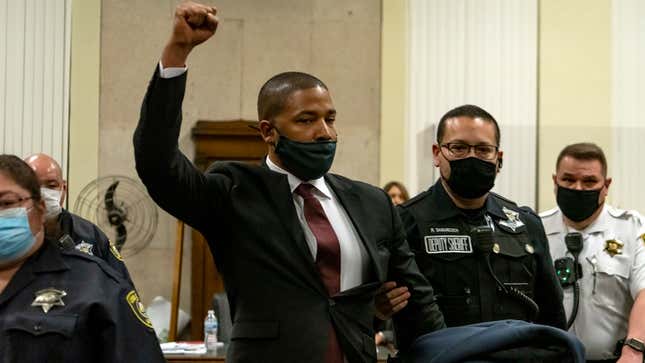Does Jussie Smollett Actually Believe His Own Story?
Smollett's outburst at his sentencing was extreme and dramatic. He may have even fooled himself.
Celebrities

“I am not suicidal,” Jussie Smollett told the Chicago courtroom Thursday after his sentencing. He said it again and then again. It became a refrain. He’d go on to say it a total of eight times in his post-sentencing statement. Two of them occurred when he was being led out of the courtroom by a deputy sheriff en route to his 150-day jail sentence.
Smollett had just been slapped with 30 months of felony probation and $145,000 in fines and restitution as a result of his December conviction for making a false police report regarding a racist and homophobic attack that he alleged occurred in January 2019.
“I am not suicidal!” he called as he left the courtroom, his right fist raised. “I am not suicidal and I am innocent! I could have said that I was guilty a long time ago!”
-

-

-

-

-

-

-

-

-

-

-

-

-

-

-

-

-

-

-

-

-

-

-

-

-

-

-

-

-

-

-

-

-

-

-

-

-

-

-

-








































